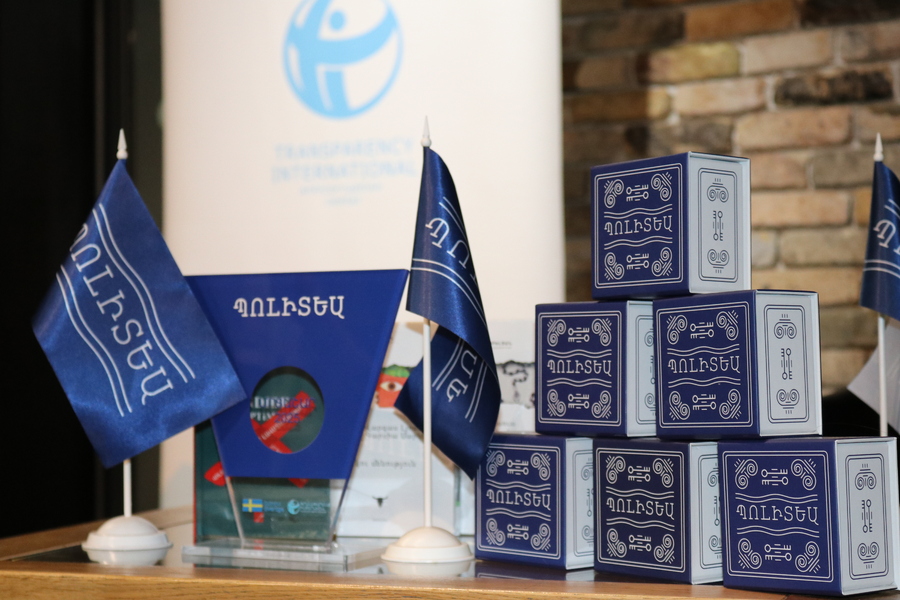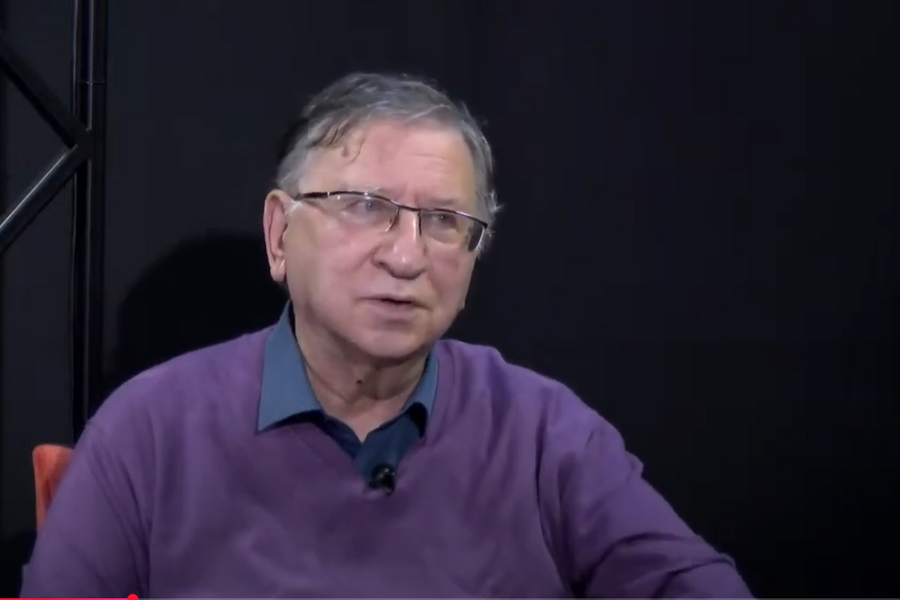Recommendations on increasing the role of OSCE/ODIHR in the improvement of electoral legislation and public participation in law making and building public trust in electoral processes
The recommendations have been submitted for OSCE 2015 Human Dimension Implementation Meeting working session on Democratic Institutions: democratic elections, democracy at the national, regional and local levels held on September 25, 2015 in Warsaw, Poland.
The latest national elections held in Armenia were the parliamentary elections of May 2012 and the presidential elections of February 2013. For the parliamentary elections, the OSCE/ODIHR Elections Observation Mission consisted of 17 experts and 24 long-term observers. On the day of elections, it joined forces with delegations of the OSCE Parliamentary Assembly (OSCE PA), the Parliamentary Assembly of the Council of Europe (PACE) and the European Parliament (EP). Overall, 349short-term observers from 42 OSCE participating States and 1 OSCE Partner for Co-operation were deployed on the election day.[1] For the presidential elections, OSCE/ODIHR Elections Observation Mission consisted of 16 experts and 24 long- term observers. On the day of elections, it joined forces with delegations of the PACE and the EP. Overall, 283 short-term observers were deployed from 36 OSCE participating States and one OSCE Partner for Co-operation.[2]
Given the example of Armenia, it is obvious that OSCE/ODIHR and the Member states spend great amounts of taxpayers’ money to promote democratic elections in various countries of the world. As the international observation missions are deployed upon the request of the countries’ governments, it is natural to expect that the latter will take respective follow-up steps to address recommendations of OSCE/ODIHR election observation missions. In case of having genuine political will to improve electoral practices, recommendations shall be thoroughly analyzed by the governments with other stakeholders and, supposedly, addressed prior to the following electoral cycle – ensuring a concrete change and justifying the expediency of expenditures of deploying international observation missions.
As the case of Armenia shows, it is quite possible to overlook the recommendations of OSCE/ODIHR without facing any consequences.
Election observation of parliamentary elections of 2012 and presidential elections of 2013 identified multiple electoral violations, and hence OSCE/ODIHR Election Observation Mission reports provided a rather comprehensive picture of those scandalous elections.[3] In particular, those reports highlighted violations of human rights, low trust of the people in the integrity of elections, low reliability of voters’ registers, violation of rights to freely express their civil and political preferences, abuse of administrative resource, poor law enforcement and punishment of perpetrators of electoral violations, restrictions of election observers, failure to handle election related complaints by election commissions and courts, etc.
Since 2012-2013, the Armenian government has not made changes in the Electoral Code to address the mentioned recommendations. It convened a working group in July 2014 to develop amendments to the Electoral Code,[4] however nothing was submitted to the National Assembly so far except for regulation of voting with ID cards.[5] In preparation of a constitutional referendum on December 6 2015, instead of improving the Electoral Code to ensure improvement of referendum administration, amendments were made to the Law on Referendum, in order to bring it in compliance with the controversial Electoral Code.
Given that the upcoming referendum will be largely guided by the Electoral Code, there are valid concerns that the malpractices will be repeated and the quality of the referendum will not be any better than the scandalous elections of 2012 and 2013, hence questioning the legitimacy of the referendum process and results.
Already there are indications of non-equal opportunities for the supporters and opponents of the referendum. In addition to usual restrictions to the access to mass media, the Armenian authorities create barriers to the exercise of rights to association, assembly and freedom of expression of the organizers of the ‘No’ campaign.[6]
Recommendation: It is critical that OSCE/ODIHR demand adequate and timely implementation of recommendations of its election observation missions by the countries’ governments to demonstrate their genuine will for promotion of reforms and justify the expenditures for deployment of observation missions. In case of failure of the necessary changes, the elections/referendums taken place in the same conditions shall be monitored on a much larger scale or not deemed to be acceptable.
In spite of the requirements of the Armenian legislation to consult the public in the process of legal drafting, [7] the current assistance of the OSCE/ODIHR in improvement of the Armenian legislation and promotion of public participation in law making[8] and general international best practices there was no adequate public participation assured in the drafting of the amendments to the constitution.[9] The draft was prepared by the Specialized Commission for Constitutional Reforms under the President’s Administration[10] without any public participation.[11] The concept of amendments was published and discussed in 2014, however the draft amendments were largely diverged from the concept document. The final draft of the new constitution was published on August 21 2015 and voted in the parliament on October 5 2015 giving the civil society only 1.5 months to react. Parliamentary hearing held on September 4 2015 proved to be an imitation and civil society comments were not taken into consideration. The document adopted by the parliament on October 5 2015 appeared to be a different text which was published only on the same day, hence giving no opportunity even to the parliamentarians to read and digest.
Though since February 2014 OSCE/ODIHR cooperates with the Armenian government to improve the Armenian legislation and public participation in law making, there has not been any reaction from this institution to the ill-groundedprocess of promotion of the constitutional amendment and failure to engage the public in consultations
Recommendation: It is important that OSCE/ODIHR demonstrate constant attention and prompt and principled reaction to the negative processes within the context of its programs and cooperation areas and demands the partner governments to actually advance its reforms.
The issue of constitutional changes is by itself controversial. Though there have not been any political preconditions or a public demand for changing the governance system of the country and there exists a strong discontent on the part of oppositional political parties, many civil society groups and legal experts, the referendum is pushed forward by the authorities rather quickly and aggressively.
The planned constitutional changes are naturally believed to be designed for the incumbent president’s desire to stay in power, given that his second term in office expires in 2018 and he is not allowed to be nominated and elected as President for the third term. The constitutional changes will allow him to continue his leadership role in the position of the speaker or prime-minister as well as secure the monopoly power of his political party - the Republican Party of Armenia.
The constitutional referendum is planned in a situation where according to the latest relevant surveys, only 13% percent of women and 12% of men believe in the honesty of elections[12] and about 81% of people do not trust at all or rather do not trust the constitutional reform process.[13] Such an attitude is based on the observed electoral violations, also reflected in the OSCE/ODIHR above-mentioned reports.
Though there are multiple methods utilized for the election fraud, the major instrument of falsification of elections in Armenia are considered to be the voters’ lists. As hundreds of thousands of Armenian citizens reside outside the country for studying, temporary working or other purposes, while their names are included in the voters lists, there is a strong belief that their names are being manipulated and used for falsification of election results.
Armenian civil society organizations have stated many times before the Armenian authorities that the least but the most necessary step for increasing the trust of citizens should be publication of the signed voter lists, so that each and every person is able to verify the participation of his/her contacts currently absent from Armenia and become confident in the honesty of the outcomes. Unless this measure is applied, no other improvements of the electoral legislation will be effective or trustful.
Recommendation: OSCE/ODIHR as well as other international organizations promoting human rights and democratic elections shall not tolerate the administration of constitutional referendum the situation of distrust towards the authorities and shall support the Armenian public’s demand for publishing of electoral lists.
[1] OSCE/ODIHR, Republic of Armenia Parliamentary Elections, 6 May 2012: OSCE/ODIHR Election Observation Mission Final Report (Warsaw, 26 June 2012), available on http://www.osce.org/odihr/elections/91643?download=true
[2] OSCE/ODIHR, Republic of Armenia Presidential Election, 18 February 2013: OSCE/ODIHR Election Observation Mission Final Report (8 May, 2013, Warsaw), available on http://www.osce.org/odihr/elections/101314?download=true
[3] See http://www.osce.org/odihr/elections/91643?download=true and http://www.osce.org/odihr/elections/101314?download=true
[4] See http://www.arlis.am/DocumentView.aspx?DocID=91421
[5] Even the latter has been postponed to be addressed after the constitutional referendum.
[6] See more in Transparency International Anticorruption Center’s Opinion on the non-compliance of the initiated constitutional referendum with the international standards on http://transparency.am/en/news/view/1086
[7] See Republic of Armenia Law on Legal Acts Article 27.1
[8] Such cooperation in based on the Memorandum of Understanding between the OSCE/ODIHR and Republic of Armenia Ministry of Justice from February 19, 2014
[9] As the proposed amendment to the Constitution of the Republic of Armenia embrace a large volume of issues and change all but the first two articles, it qualifies for a new constitution rather than amendment
[10] See http://www.president.am/hy/decrees/item/947/
[11] Two CSOs engaged in the Commission are dependent on the president or other members of the Commission, hence may not actually be considered as public organizations
[12] Lymari Morales, “Women Worldwide Less Confident Than Men in Elections”, Gallup, Inc. (Washington, 11 October 2012)
http://www.gallup.com/poll/157997/women-worldwide-less-confident-men-elections.aspx
[13] APR Group, Report on Research on RA Constitutional Report (Yerevan, September 2014), available on http://aprgroup.org/images/Library/Constitution/research%20report-eng-q.pd





